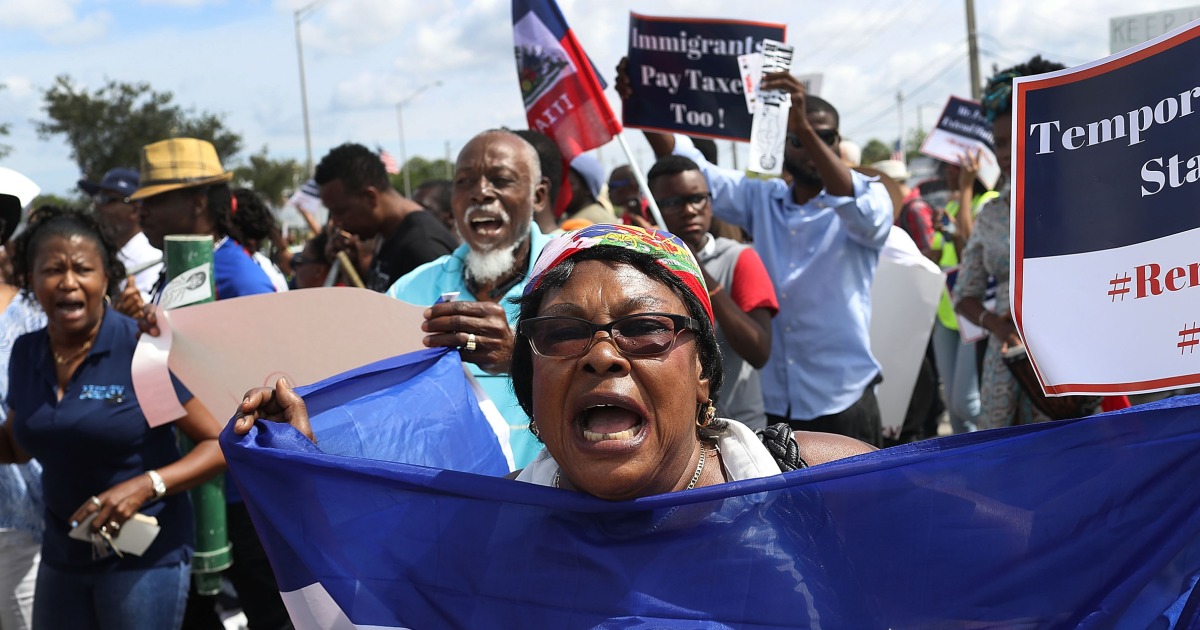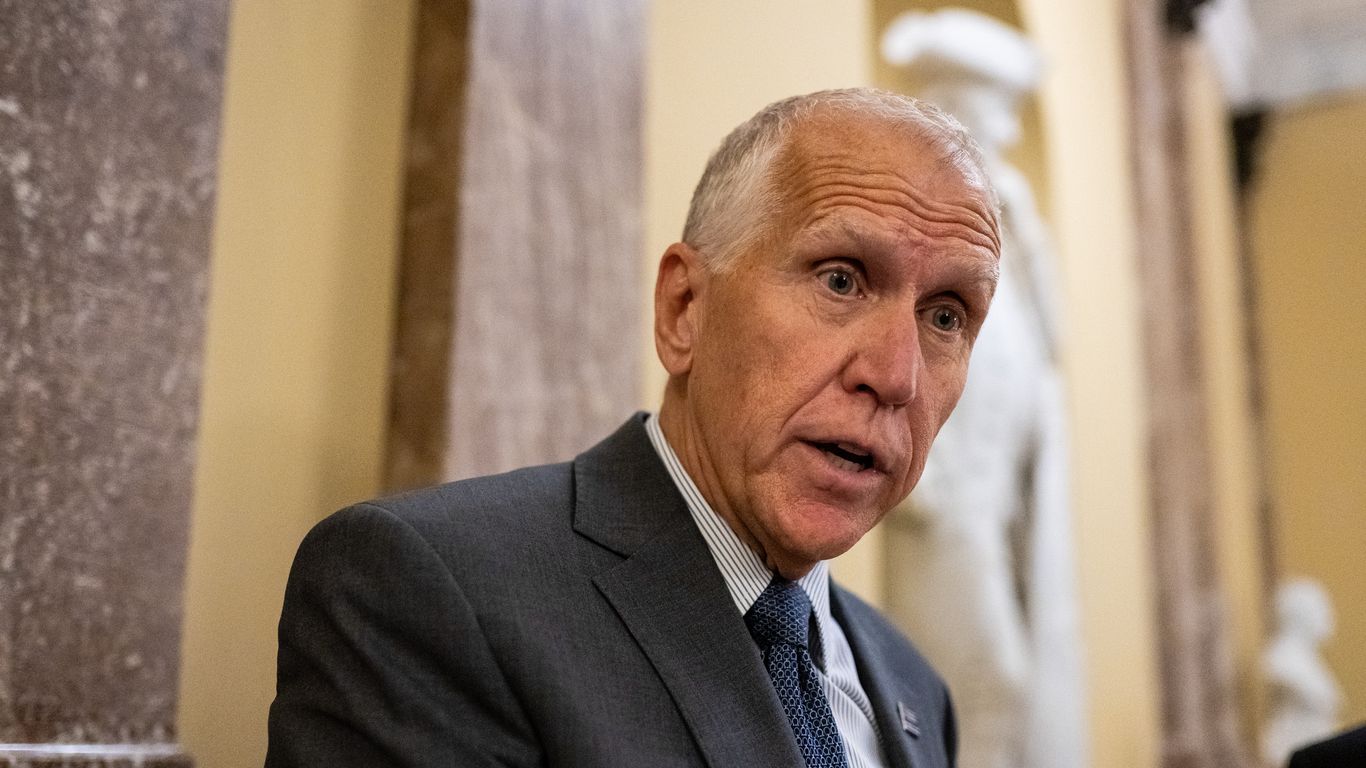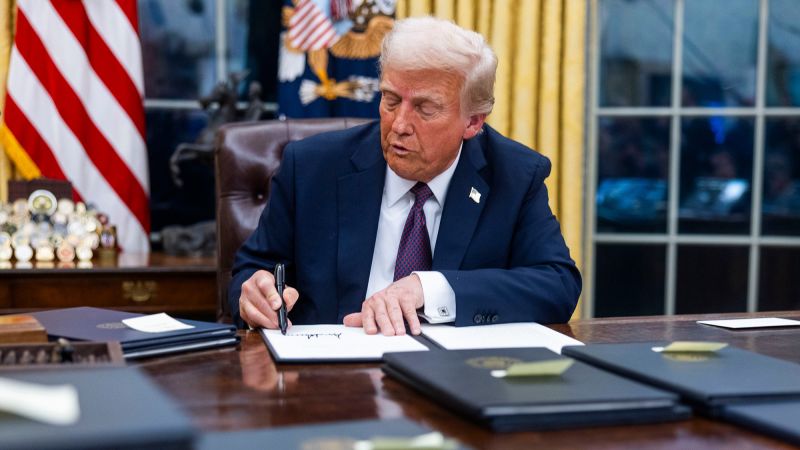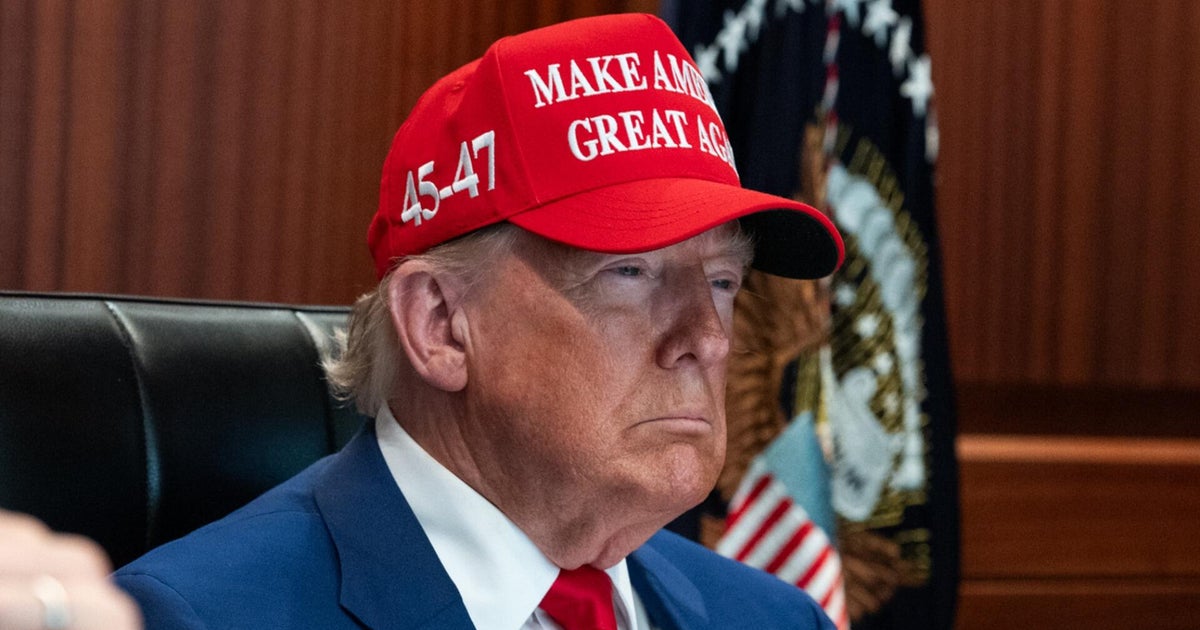Vietnam Secures Trade Deal with Trump Administration

Introduction
Vietnam has been making strides in securing a trade deal with the Trump administration, giving the Southeast Asian country an edge over its regional rivals. With details of the deal still unclear, Vietnam has been proactive in its efforts to secure an early agreement, according to Ted Osius, president of the US-Asean Business Council. This puts Vietnam in a favorable position as compared to other countries in the region.
Background
Similar to how President Trump has granted refugee status to white South Africans, even though many of them do not want to relocate, he has also met with Syrian President Ahmad al-Sharaa during his Middle East tour. Trump has also used his visit to the Gulf states to reject America's past interventionist policies in the region. This has given him the opportunity to push for peace and strengthen relationships with these countries.
Current Scenario
As Trump continues to make headlines with his policies and actions, Israel has been presented with a historic opportunity during his Middle East tour. The President's decision to bypass Israel has caused some media outlets to speculate a rift with Prime Minister Netanyahu. However, experts believe that this presents Israel with a chance to make a move and strengthen its bond with the US.
The Trump administration has also been making waves in the business world, with the President urging Walmart to absorb the consequences of his tariffs rather than raising prices. This comes after he criticized the retail giant for warning of possible price increases due to his policies. The administration has also been busy working on its tax cut plan, with the chairman of the Ways and Means Committee consulting with the White House before its unveiling.
Conclusion
With the Trump administration's focus on policies and deals, the world is watching with bated breath to see how these moves will play out. While some may view his actions as controversial, others see it as an opportunity for countries and businesses to strengthen their ties with the US. Only time will tell how these developments will shape the global landscape in the long run.
About the People Mentioned
Ted Osius
Ted Osius is an American diplomat and business leader with over thirty years of experience in the U.S. Foreign Service. He joined the Foreign Service in 1989, with early postings in Manila, Vatican City, and the United Nations. Notably, in 1996, he was among the first U.S. diplomats to work in Vietnam after the Vietnam War, contributing to the establishment of the U.S. consulate in Ho Chi Minh City in 1997. Osius held various significant roles including advising Vice President Al Gore on Asian affairs, serving as regional environmental affairs officer in Bangkok, and deputy chief of mission in Jakarta. He was also political minister-counselor in New Delhi and deputy director of the Office of Korean Affairs in Washington, D.C. From 2014 to 2017, Osius served as the U.S. ambassador to Vietnam, where he led a team of 900 to deepen economic, security, and cultural ties between the two countries. After his ambassadorship, he transitioned to the private sector as Vice President for Government Affairs and Public Policy at Google Asia-Pacific, overseeing policy across 19 Asian nations from Singapore. He also served as senior advisor at the Albright-Stonebridge Group and was the first Vice President of Fulbright University Vietnam. Osius has held academic positions including associate professor at the National Defense University and senior fellow at the Center for Strategic and International Studies. Since August 2021, Ted Osius has been President and CEO of the US-ASEAN Business Council. In 2021, he published the book *Nothing Is Impossible: America’s Reconciliation with Vietnam*, documenting the evolving relationship between the two countries. His career is marked by pivotal roles in U.S. diplomacy in Asia, particularly in fostering U.S.-Vietnam relations and advancing regional cooperation and business ties[1][3][6][7][5].
Ahmad al-Sharaa
Ahmed al-Sharaa, born on October 29, 1982, in Riyadh, Saudi Arabia, is a Syrian politician and former rebel commander. He is known by his nom de guerre Abu Mohammad al-Julani. Al-Sharaa's early life was marked by his involvement with extremist groups; he joined al-Qaeda in Iraq before the 2003 invasion. He was captured by American forces in 2006 and held until 2011, when he was released during the Syrian Revolution. Upon his release, al-Sharaa played a pivotal role in the Syrian Civil War by forming the al-Nusra Front in 2012, initially as an al-Qaeda affiliate. However, he severed ties with al-Qaeda around 2016 and transformed the group into Hayat Tahrir al-Sham (HTS), which became a dominant force in Syria's opposition. Under his leadership, HTS focused on local governance and combating other extremist groups like ISIS and al-Qaeda. Al-Sharaa's efforts led to the establishment of the Syrian Salvation Government in Idlib, which managed local institutions and trade. In 2024, al-Sharaa's forces were instrumental in toppling the Assad regime, ending decades of rule by the Assad family. Subsequently, he was appointed as the de facto leader of Syria before being formally elected as president in 2025. His presidency marks a significant shift in Syria's political landscape, with al-Sharaa attempting to rehabilitate his image and engage internationally. He has renounced transnational jihadism and seeks to improve relations with Western nations while focusing on governance and minority protection in Syria. Al-Sharaa's presidency is seen as a critical moment in Syria's transition, with ongoing challenges related to rebuilding and international recognition.
Donald Trump
Donald John Trump, born June 14, 1946, in Queens, New York, is an American businessman, media personality, and politician. He graduated from the University of Pennsylvania’s Wharton School in 1968 with a degree in economics. In 1971, he took over his family’s real estate business, renaming it the Trump Organization, through which he expanded into building and managing skyscrapers, hotels, casinos, and golf courses. Trump gained widespread fame as the host of the reality TV show *The Apprentice* from 2004 to 2015, which helped establish his public persona as a successful entrepreneur. Trump entered politics as a Republican and was elected the 45th president of the United States, serving from 2017 to 2021. His presidency was marked by significant policy actions including tax cuts, deregulation, the appointment of three Supreme Court justices, renegotiation of trade agreements (notably replacing NAFTA with the USMCA), and a focus on immigration control including border wall expansion. He withdrew the U.S. from international agreements such as the Paris Climate Accord and the Iran nuclear deal, and engaged in a trade war with China. His administration’s response to the COVID-19 pandemic was criticized for downplaying the virus’s severity. Trump was impeached twice by the House of Representatives—first in 2019 for abuse of power and obstruction, and again in 2021 for incitement of insurrection—but was acquitted by the Senate both times. After losing the 2020 election to Joe Biden, Trump challenged the results, culminating in the January 6, 2021, Capitol riot. He remains a central figure in American politics, having won the 2024 presidential election and returned as the 47th president in 2025, continuing to promote policies aimed at economic growth, border security, and military strength[1][2][3][4].
Benjamin Netanyahu
Benjamin Netanyahu, born on October 21, 1949, in Tel Aviv, Israel, is a prominent Israeli politician and diplomat who has served as Prime Minister of Israel three times (1996–1999, 2009–2021, and from 2022 onwards). He began his career in the Israeli military's special operations and later transitioned into politics in the late 1980s, joining the Likud party[1][2]. Netanyahu first became prime minister in 1996, during which time he signed the Hebron and Wye Accords, advancing peace efforts with the Palestinians. His administration focused on economic reforms such as government privatization, liberalizing currency regulations, and reducing deficits. After losing the 1999 election, he served as foreign minister and finance minister before reclaiming the Likud leadership in 2005[1][3][4]. Returning as prime minister in 2009, Netanyahu formed a national unity government and proposed a demilitarized Palestinian state recognizing Israel as the Jewish state, emphasizing security concerns. His tenure was marked by fluctuating peace negotiations with the Palestinians and contentious policies including settlement expansions. He also maintained a hawkish stance on Iran and supported the Iraq war[1][3][5]. In 2022, Netanyahu made a political comeback as prime minister, leading a coalition that included far-right parties. His leadership during this period has been pivotal amid the 2023–2024 Israel-Hamas conflict, with significant domestic and international implications[2]. Netanyahu is Israel’s longest-serving prime minister and remains a central figure in Israeli politics, known for his strong security policies, economic reforms, and complex role in the Israeli-Palestinian conflict. His career has been marked by both political resilience and controversy, reflecting his enduring influence on Israel’s domestic and foreign affairs[2][3][5].
About the Organizations Mentioned
US-Asean Business Council
## Overview The US-ASEAN Business Council (USABC) is a Washington, DC-based nonprofit advocacy organization dedicated to strengthening economic, trade, and investment ties between the United States and the Association of Southeast Asian Nations (ASEAN), which comprises ten nations: Brunei, Cambodia, Indonesia, Laos, Malaysia, Myanmar, the Philippines, Singapore, Thailand, and Vietnam[3]. Established in 1984 in response to a request from ASEAN governments, the Council is the leading voice for the U.S. private sector in Southeast Asia and the only U.S.-based organization formally recognized in the ASEAN Charter[2][3]. ## What the Organization Does USABC represents over 170 of the largest U.S. corporations—including industry giants like Boeing, ExxonMobil, Google, and IBM—generating more than $7 trillion in global revenue and employing over 13 million people[3][5]. The Council provides its members with advocacy, research, intelligence, educational programs, and direct access to ASEAN government officials and ministers[3][7]. It organizes business missions, produces analytical reports on emerging sectors (such as cybersecurity, fintech, energy, and life sciences), and facilitates high-level dialogues between U.S. executives and ASEAN policymakers[3][7]. Through its foundation, USABC also supports humanitarian efforts, community engagement, and educational scholarships in the region[3]. ## History The Council was founded as the US-ASEAN Center for Technology Exchange in 1984, with an initial mission to enhance technology transfer and trade opportunities between the U.S. and ASEAN[1][2]. It absorbed the ASEAN-US Business Council in 1989, and in 1997 adopted its current name[2]. The organization has witnessed and contributed to the remarkable growth of U.S.-ASEAN trade, which reached $198.5 billion by 2012[2]. ## Key Achievements - **Advocacy an
Walmart
Walmart, founded in 1962 by Sam Walton, has grown from a single discount store in Arkansas to become the world’s largest retailer, with a commanding presence in both physical and digital retail landscapes[3]. As of fiscal year 2025, Walmart operates over 10,750 stores and serves approximately 270 million customers each week across 19 countries, employing about 2.1 million associates worldwide[1][2][4]. The company reported $681 billion in revenue for 2025, reflecting a 5.1% increase from the previous year and an 8.6% rise in operating income, underscoring its robust financial health and ongoing expansion[1][4][6]. ## What Walmart Does Walmart is a leader in hypermarkets and discount retail, offering a vast range of products—from groceries and apparel to electronics and home goods—through its extensive network of physical stores, e-commerce platforms, and mobile apps[2][3]. Its business is organized into three main segments: Walmart U.S., Walmart International, and Sam’s Club, a members-only warehouse club[3][5]. The company’s mission—“to help people save money and live better”—drives its focus on everyday low prices, convenience, and customer-centric innovation[2][5]. ## History and Key Achievements Walmart’s journey from a single store to a global powerhouse is marked by relentless expansion, operational efficiency, and technological adoption[3]. Key milestones include the launch of Walmart Supercenters in the 1980s, international expansion beginning in the 1990s, and the rapid growth of its e-commerce business in the 2010s and beyond[3]. Today, online sales account for 18% of Walmart’s revenue, fueled by four consecutive quarters of 20% growth[1]. The company’s retail media network, Walmart Connect, has also surged, with ad revenue up 50% in a recent quarter
White House
The **White House Office** is a central organizational component within the Executive Office of the President of the United States (EOP), tasked with supporting the President in managing day-to-day operations, policy formulation, and political affairs. It is headed by the White House Chief of Staff and staffed by senior aides who report directly to the President, including those with titles such as Assistant to the President and Deputy Assistant to the President. These staff members are mostly political appointees without the need for Senate confirmation, allowing the President considerable discretion in shaping the office to suit each administration's priorities[1]. Historically, the White House Office was established in 1939 through Reorganization Plan 1 and Executive Order 8248 to provide immediate assistance to the President. It functions as the nerve center for presidential staff, physically located primarily in the West Wing, and plays a pivotal role in managing the President’s policy agenda, communications, and political strategy. Its flexible organization allows each President to tailor the staff composition and roles according to their governance style and objectives[1]. In the current context of 2025, the White House Office operates under the administration of President Donald J. Trump, who returned to office after the 2024 election. His administration emphasizes rejecting prior policies deemed extremist and focuses on enhancing quality of life, economic growth, and American energy dominance. The administration includes Vice President JD Vance and First Lady Melania Trump, among others, with a Cabinet advising on various governmental functions[4][6]. Recent initiatives linked to the White House’s operational sphere include the establishment of a new **Department of Government Efficiency (DOGE)** aimed at modernizing federal technology and software to boost government productivity. The DOGE agenda is implemented through the renamed United States DOGE Service within the Executive Office, reflecting a concerted push to leverage technology for administrative modernization[5]. Notably, the White House Office also coordinates national security and homeland security functions through the National Security Council staff, underscoring its central role


















